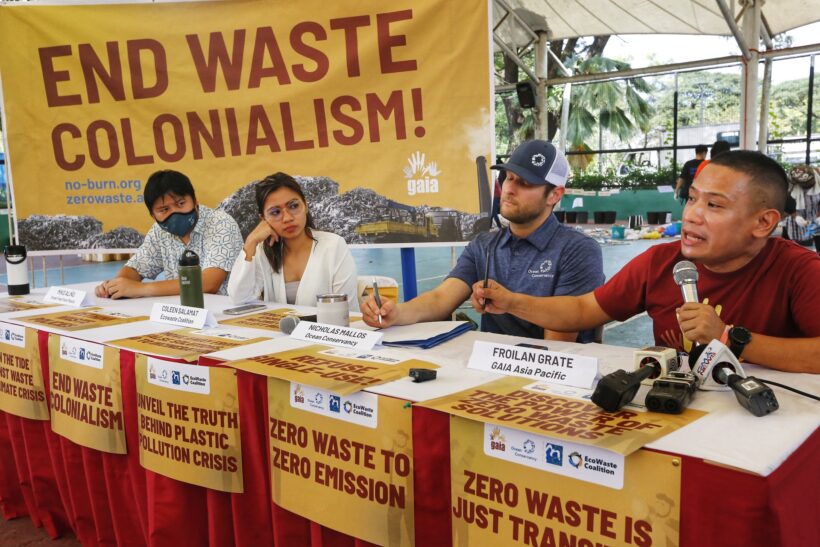Exposing the truth behind the plastic crisis through a brand audit
The Global Alliance for Incinerator Alternatives (GAIA) Asia Pacific took a bold step forward in unveiling the truth behind the plastic pollution crisis through a waste assessment and brand audit (WABA)* and media briefing event on January 24, 2023, as part of the International Zero Waste Month 2023.
With participation from Ocean Conservancy, this event shed more light on the narrative impact of the GAIA network’s brand audits. Ocean Conservancy published a report in 2015* that put blame on Asian countries as the main drivers of plastic pollution in the ocean and positioned incineration as a solution to the plastic crisis. They retracted the report in July 2022, recognizing the harm it caused.
“We, at the Global South, have carried the weight and responsibility of waste for too long while our reality and the community solutions we have developed are ignored,” said Froilan Grate, GAIA Asia Pacific Coordinator. “This brand audit with GAIA, Mother Earth Foundation, Ecowaste Coalition, and Ocean Conservancy shows the commitment to work towards reducing waste, moving away from false solutions, acknowledging the work happening on the ground, and most importantly, restoring justice where it was previously overlooked.”
Since Ocean Conservancy’s retraction of the report, the two organizations have been engaging in a restorative justice process to acknowledge and address the harm done by the report and join forces to expose false solutions and drive accountability among plastics producers.
“We cannot solve the plastic pollution crisis without reducing virgin plastic production, especially single-use plastics,” said Nicholas Mallos, Ocean Conservancy’s Vice President of Ocean Plastics. “This has to be our first priority. We are grateful for the incredible work that GAIA has done to shed light on this issue and hope to learn from their members. We look forward to working together by leveraging each of our organizations’ strengths to eliminate plastic pollution.”
For years brand audit reports have shown that consumer brands based in the Global North have been overproducing single-use plastics and flooding Asian markets with disposable, throwaway packaging, at the expense of citizens and local governments who end up footing the bill and enduring the long-lasting environmental health effects associated with plastic pollution.
Von Hernandez, Global Coordinator of the #breakfreefromplastic movement said, “For years, the public has been conditioned to believe that the problem of plastic pollution, now manifesting in the unprecedented, pernicious, and wide-ranging contamination of all life on the planet, was caused by their undisciplined ways and the failure of governments to institute and implement proper waste management systems. Our brand audits have now exposed the real causes of this crisis – and it is mainly due to the irresponsible and predatory practice by corporations of saturating our societies with single-use plastics of all kinds with no consideration about how they can be managed in an environmentally safe and benign manner.”
“In addition, Ecowaste Coalition campaigner Coleen Salamat said, “The real issue is the export of waste and waste-to-energy (WtE) incineration technologies to developing countries,” In the Philippines and in the rest of Asia, “We are faced with truckloads of waste that we have no means of handling. From products packed in sachets to WtE incineration projects, and waste colonialism* has sadly become a norm.”
“It is never too late to turn things around. Communities around the world are discovering the power of Zero Waste solutions. Through the restorative justice process, we will continue to expose the truth of the waste crisis and it will be more than just a wake-up call to fast-moving consumer goods (FMCGs) and purveyors of false narratives, but cold water splashed over their faces,” said Grate. “The Zero Waste solutions that we have and have been doing all these years will be enough for our lawmakers to rethink their policies to turn the tide against waste and the climate crisis.”
Here are some photos of the event:
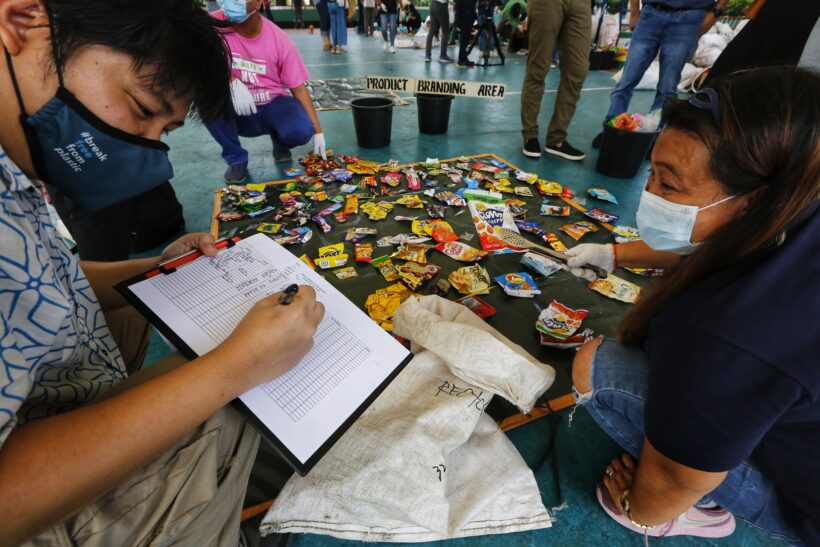
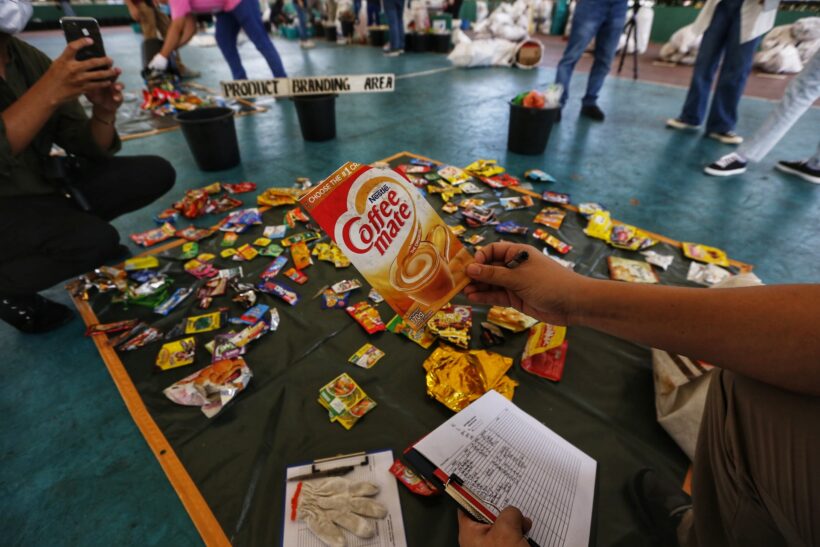
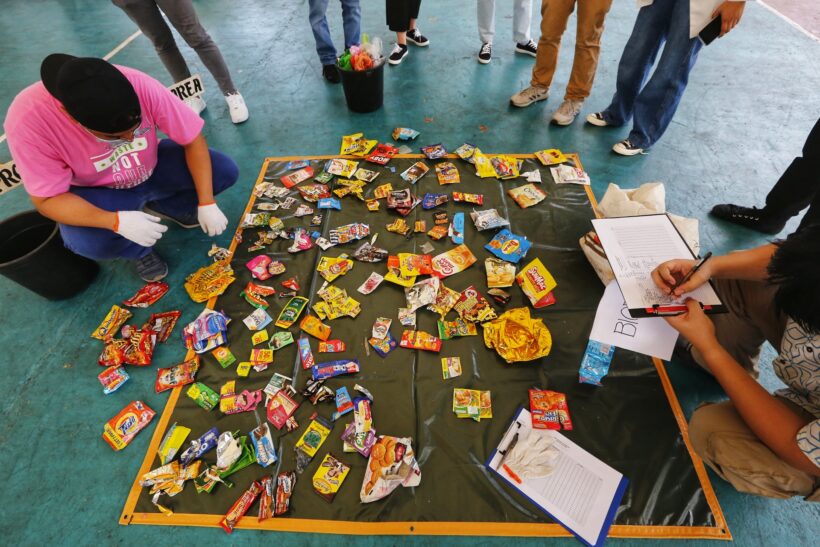
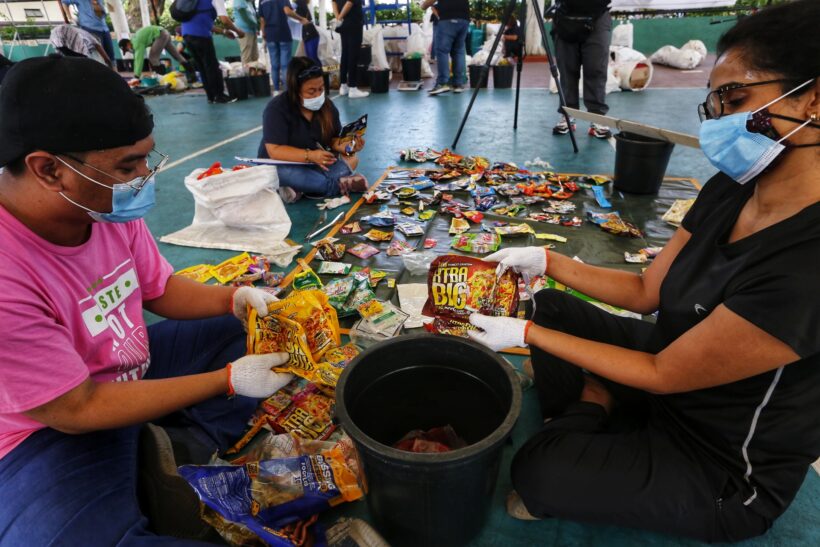
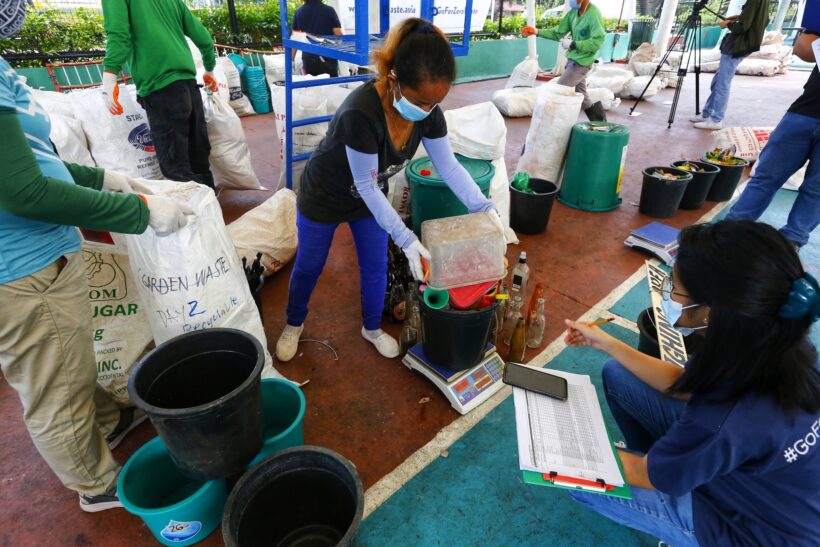
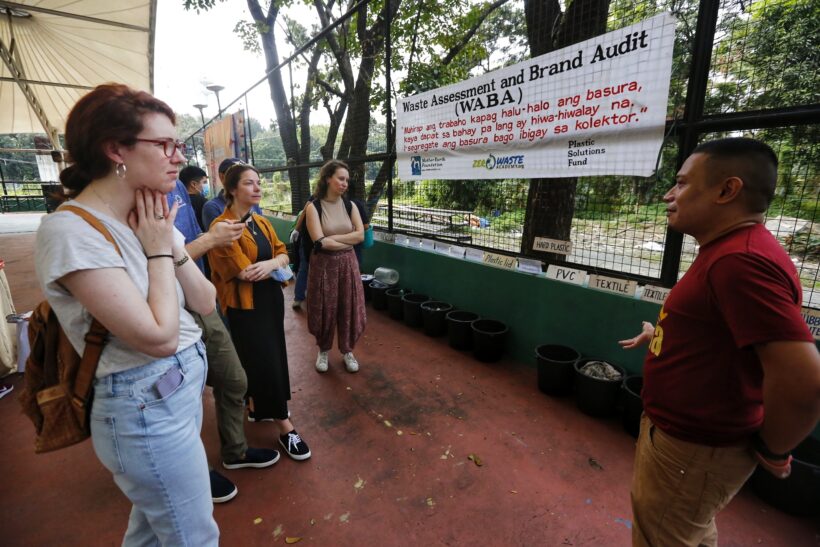
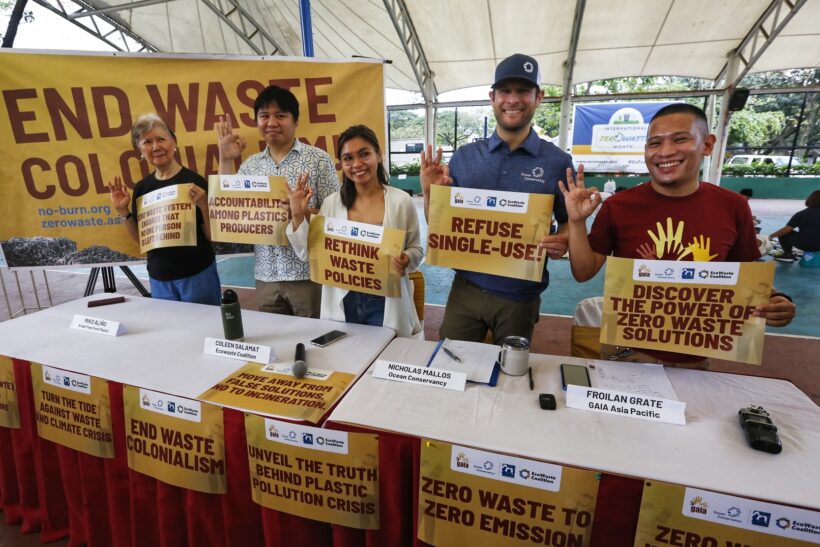
***
* Waste Assessment and Brand Audit (WABA) is a methodical process of collecting and analyzing waste to determine the amount and types of waste generated by households and cities and identify which brands are responsible for producing certain percentages of the collected waste. Plastics Exposed details how waste assessments and brand audits help Philippine cities tackle plastic waste.
* In 2015, the US-based non-profit Ocean Conservancy published the report, Stemming the Tide. This has since been retracted by Ocean Conservancy.
* Waste colonialization is the practice of exporting waste, from the higher-income countries to lower-income countries that are ill-equipped to handle this waste which places the burden of plastic and toxic waste on the environment, communities, and these countries’ informal waste sector, especially in the Global South.
Watch the live stream of the event here: Facebook Live
*************
The International Zero Waste Month is made possible in partnership with the following media outlets: Advocates (Philippines), Bandung Bergerak (Indonesia), Business Ecology (China), The Business Post (Bangladesh), The Manila Times (Philippines), Pressenza (Global), Rappler (Philippines), Sunrise Today (Pakistan), The Recombobulator Lab (Global), and Republic Asia.
Zero Waste Month celebrations originated in the Philippines in 2012 when youth leaders issued a Zero Waste Youth Manifesto calling for, among other things, the celebration of a Zero Waste Month. This was made official when Presidential Proclamation No. 760 was issued, declaring January as Zero Waste Month in the Philippines. It was then promoted widely by NGOs and communities that had already adopted this approach to manage their waste.
***
GAIA is a network of grassroots groups as well as national and regional alliances representing more than 1000 organizations from 92 countries.
For more information, visit www.no-burn.org and zwmonth.zerowaste.asia or follow GAIA Asia Pacific on social media: Facebook, Twitter, Instagram, YouTube, and TikTok.


